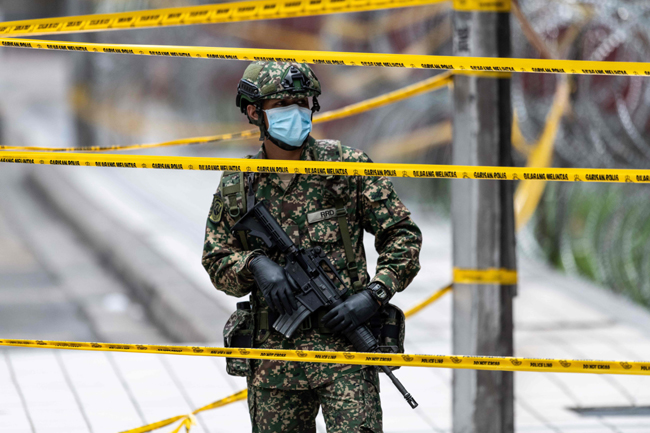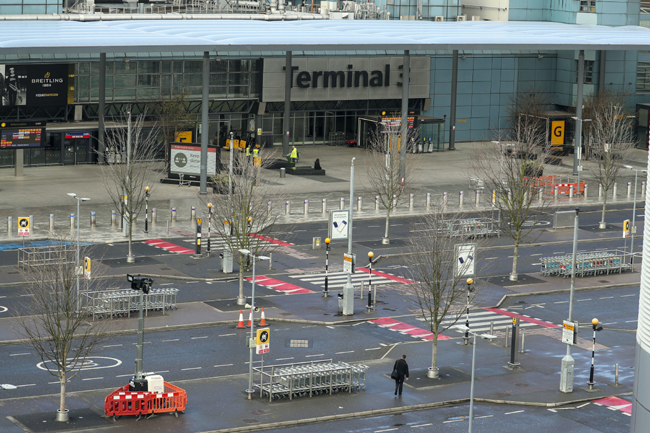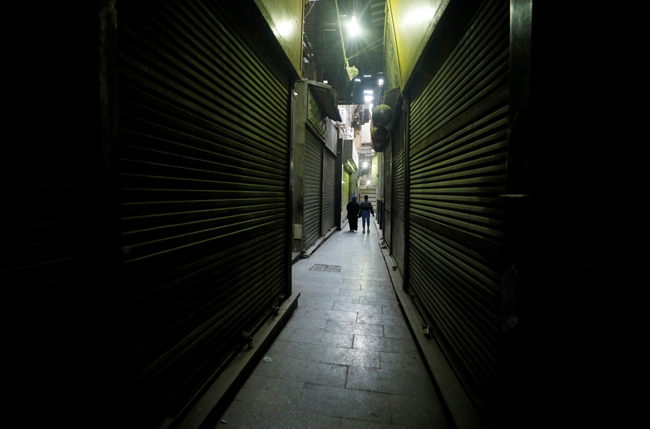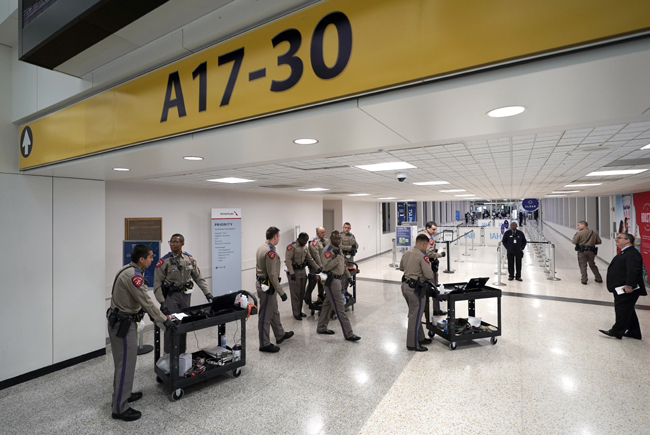Mirna, 25, travelled to Malaysia in January to advance her career. Two months later, she is locked up on her own in an apartment with limited supplies. Mirna wishes to go back home, but she can't.
She is one of many young Egyptians who travelled to study or work. These people's lives took a turn for the worse due to the coronavirus outbreak.
Mirna travelled to Petaling Jaya, Malaysia, to work in an international media company, but now she is stuck in the Southeast Asian country after authorities announced a coronavirus lockdown and suspended flights without prior notice.
“One day I was at work. We were told to be more cautious because someone had tested positive for the virus. Shortly afterwards, we were told to evacuate the building,” said Mirna.
She predicted the crisis was going to exacerbate and a curfew would be imposed, so she began stockpiling groceries and other essentials.
On 16 March, Malaysia announced a total lockdown, and everything was shut down except for supermarkets, pharmacies, banks and places providing vital services.
Mirna’s original plan was to return to Egypt once Malaysia announced suspending flights.
“But we weren't given prior notice. The day they announced the lockdown, they closed the airports, and I was stranded,” she said.
Mirna doesn’t know anyone in Malaysia and she says she has not received any help from Egyptians there, and that the Egyptian embassy has not offered to help.
“I am stuck here and I don’t know what is going to happen. I am totally alone. I am worried about everything, I am worried I will run out of cash and food. It's so scary,” she said.
One of Mirna’s biggest concerns at the moment is her 60-year-old mom, who lives alone in Egypt and is facing the risk of contracting the virus.

A soldier, wearing a face mask and gloves, stands in front of the City One condominium in Kuala Lumpur on April 6, 2020, after it was cordoned off due to a number of cases of individuals with COVID-19 novel coronavirus at the premises. (AFP)
Returning home
Unlike Mirna who couldn’t make it home, Amennah, 26, was able to return to Egypt from the UK the last day before Egypt’s flight suspension took place and spent two weeks in self-isolation in her room in Egypt upon her return.
Amennah was studying for a Master’s degree in the UK when the outbreak occurred.
“No one took the virus so seriously in the beginning,” Amennah said.
“The turning point for me and my friends was Boris Johnson’s speech on 12 March, when he told the people to ‘prepare to lose loved ones before their time’,” she said.
She wished the country had taken measures to fight the epidemic instead of what she described as “indifference and prioritising the economy over the people.”
Amennah said she then felt that things were getting more serious, so she tried to book a ticket to Egypt.
“It was very hard to find a ticket. The moment Egypt announced it was suspending international flights, the prices doubled and most flights were fully booked,” she said.
But the postgraduate student was lucky when the country’s flagship airline decided to operate two more flights.
“Mine was the one before the last to land at Cairo airport before the suspension,” Amennah said.
Amennah says she is having a hard time trying to work out how her future will look like, or what she is going to do to make up for the lost year.
Another graduate student in Europe is Hala, 24, who studies public policy in Erfurt, Germany.

The empty forecourt outside Terminal 3 at London's Heathrow Airport Monday April 6, 2020. The airport is running only one operational runway as the UK continues a public lockdown to help curb the spread of the coronavirus. The highly contagious COVID-19 coronavirus has impacted on nations around the globe, many imposing self isolation and exercising social distancing when people move from their homes. (AP)
Unlike Amennah she was already in Egypt for a month vacation when Egypt decided to suspend flights, and now her academic future is up in the air. It is yet unclear when or how she can return to Germany.
“When I was in Germany, a friend of mine who is not German was denied medical examination even though she had coronavirus symptoms. I was afraid that in such circumstances I would never have any priority for medical treatment if I contracted the virus,” Hala told Ahram Online.
“There are many procedures for residence permits for foreigners in Germany, but because of the epidemic, the foreigners’ offices were shut down, so if my permit expires, I don’t know what I should do.”
Hala said that many of her Egyptian friends are still stranded in Germany and other European countries because they were not able to buy flight tickets either because their prices soared or no seats on planes were available. Now they are trying to arrange with the Egyptian authorities to repatriate them.
But the picture for Hala who had travelled on a scholarship is not as grim as in the case of many of her colleagues who pay academic expenses on their own.
“I was in Germany on a scholarship, so I didn’t have to work to provide for myself so I wouldn’t have faced a financial problem if I stayed there, but my colleagues who are not on scholarships and now are stuck there can’t find jobs since everything is shut down or working with half capacity.”

Closed shops are seen at a popular tourist area named "Khan el-Khalili" in the al-Hussein and Al-Azhar districts in Cairo as Egypt ramps up efforts to slow the spread of coronavirus disease (COVID-19) in Cairo, Egypt, April 6, 2020. (Reuters)
Shelved plans
On the other side of the Atlantic Ocean, Sherif, 26, has been living in Chicago, Illinois, for two years. He travelled there to pursue a Master’s degree in public policy and is currently still in the city.
“Chicago used to be one of the US' most vibrant cities. Now it is a ghost town,” Sherif said.
He said when the virus started in Wuhan, Chicago banned the entry of people from the Chinese city, but still it seemed like “other people’s problem.”
But after a coronavirus case was detected in the US, then in Illinois, people in the city became more worried.
“During my last week in university, almost all activities were cancelled. University shifted to online mode for the rest of the spring semester and urged students in the dorms to leave as soon as possible.

Texas Department of Public Safety Troopers make their way to a gate to meet arriving airline passengers from a city under travel restrictions at George Bush Intercontinental Airport Tuesday, March 31, 2020, in Houston. (AP)
"During that week, a case was reported in the university hospital, and then another case was confirmed in the School of Public Policy where I study.”
The state of Illinois at that point decided to shut down all restaurants, coffee shops and pubs except for delivery and takeout, then it announced a lockdown after the number of cases had increased.
After finishing his Master’s requirements in mid-March, Sherif was planning to travel with his university to Morocco to study the Western Sahara conflict and then go back to Egypt for a vacation. He would then return to Chicago and work in the US.
All Sherif’s post-graduation plans are in the balance due to the coronavirus outbreak.
“My personal goal right now is not to get depressed because of what’s going on, I want to take advantage of my stay at home alone to do the things I didn’t have time to do before.”
“I will continue learning how to play the Ukulele, and maybe learn a new language. I also watch lots of movies, and I want to read and cook more,” he said.
Short link: